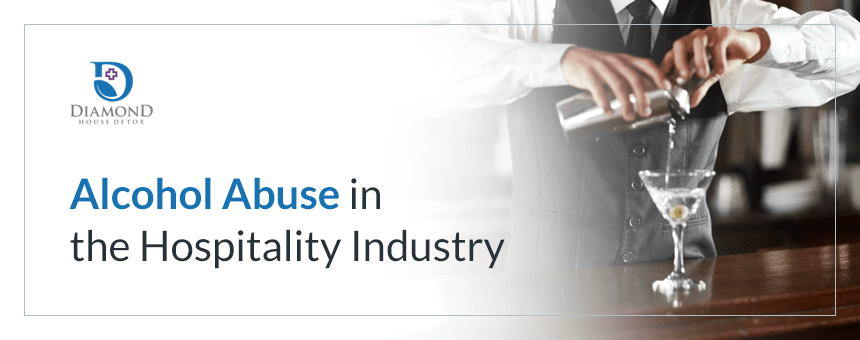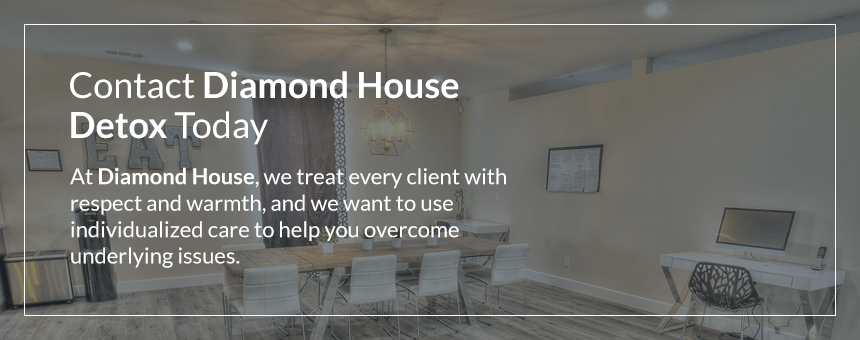
Updated July 18, 2023
Whether you're struggling with addiction or currently in a treatment program, you might worry what life after rehab is like. Perhaps you're afraid that you'll be unable to enjoy life without drugs or alcohol. You may feel like you've lost your sense of purpose.
Even if your life has revolved around substance use for years, it's never too late to start new. You can love your life after addiction. However, it's important to set realistic goals and expectations, and never be afraid to reach out for help when you're in need of support.
During your recovery, you'll discover new qualities about yourself, and little by little, you'll gain a clearer understanding of who you are and what you truly want. It's not always easy to face the consequences of addiction, but you have plenty of support ready to help you along the way.
If you've made it through rehab, you accomplished a feat of self-love, and it's time to celebrate by living a life that's authentic and healthy. If you're still in treatment or considering getting help, know that there is hope — you too can create a healthier, happier future. In this post, we'll share tips and goals for building your life after rehab and enjoying a sense of purpose — addiction-free.
Goals are important for all human beings. They help give us a sense of purpose and motivate us to push forward even when times are tough. When we accomplish our goals, we feel good about ourselves and ready to continue down a positive path.
If you're wondering what to do after addiction recovery, remember that there are plenty of healthy alternatives to substance use. It might take some brainstorming, but you can come up with a list of attainable goals to keep you busy and focused.
Goals should be specific and achievable with time and effort, so avoid setting goals that are vague or impractical. Setting goals and striving to reach them will make you happier in recovery and life in general. Below are ideas to help you get started building a life that feels meaningful.
While you were struggling with addiction, you may have made mistakes that affected your job or career. Perhaps you missed too many days at work or were unable to put forth your best effort. Try not to feel discouraged — it's never too late to start over.
If you're unable to pick up where you left off at your current or most recent job, you can use recovery as an opportunity to explore other careers or passions. You might consider going to school and furthering your education, for example. Maybe you wish to earn a certificate in substance abuse counseling so that you can use your experience to help others overcome addiction.
Focusing on work will help you feel like a productive member of society again. You'll build up self-esteem, feel more secure and move toward resolving financial issues. A job also provides structure to help you maintain sobriety.
Employment impacts the health of all individuals. A survey from 2009 found that unemployment and underemployment have negative effects on mental and physical health. For example, unemployed individuals reported higher levels of stress and depression. On the other hand, employed individuals who worked full-time were less stressed and more likely to make healthy lifestyle choices. This fact does not mean that you should be work-obsessed after rehab, as a good work/life balance is still important. Instead, recognize that work provides the stability you need to help you through recovery.
Addiction takes a toll on relationships with friends and family, and it's not always easy to face the emotional damage done. You may have hurt the people you love most while you used drugs or alcohol. Perhaps you were unavailable when they needed you. Fortunately, with time and effort, you can rebuild your relationships with the people you cherish. It's a matter of rebuilding trust.
The first step to rebuilding trust in your relationships is to learn to trust yourself again. When you were addicted, drugs or alcohol controlled you and the choices you made. During recovery, you're in control of your life and decisions. Learn to trust yourself, and others will follow.
Restoring trust takes time. Only through your actions can you show loved ones that you're responsible, dependable and trustworthy. It could take months or years for friends and family members to trust you again. Nevertheless, don't lose hope. As time passes and you prove you genuinely want to be a good spouse, parent or sibling again, loved ones will recognize your genuine effort and begin to trust you. Here are steps you can take to start rebuilding trust after addiction:
Realize that the most important relationship during recovery is the one you have with yourself. Forgive yourself. Strive to understand yourself. Reconnect with yourself, and you'll be in a better position to connect with others.
Belonging is a basic human need. Even shy or introverted individuals need a sense of belonging. When we feel like we belong somewhere, whether it be in a community or with another human being, we're more motivated to stick to our goals. We feel comforted by sharing our experiences with others. We realize that we're not alone.
Being part of a sober community will give you the support you need to reach goals and maintain sobriety. Individuals with the same struggles can help you overcome triggers and stay on track. Consider joining a support group, and regularly attend meetings so that you don't feel alone throughout your recovery.
Many individuals in recovery claim that volunteering helps them feel like a part of something bigger. Volunteering has many benefits for you and the individuals you help. According to the National Council on Alcoholism and Drug Dependence (NCADD), volunteers often report:
By contributing your experience, knowledge and talents to your community, you not only help others but also help yourself and your recovery.
Addiction recovery is not all about hard work and reaching goals. Make time to enjoy life, and permit yourself to have fun. Take up new hobbies or rediscover old ones to relieve stress, prevent boredom and enjoy a positive distraction.
Hobbies are not complicated. In fact, a hobby is simply something you enjoy doing. Part of staying sober is discovering healthy alternatives to substance use. Hobbies help you forget your troubles and often offer ways to meet new people. A recent study found that when participants engaged in leisure activities, they experienced more positive moods, less stress and lower heart rates.
How do you choose a hobby? A hobby is something that is relaxing and enjoyable to you. If the thought of a particular hobby stresses you out, overwhelms you or is unappealing, you can choose a different one. They can be anything big or small that pleases you. Some hobbies include:
There are dozens of hobbies that you can enjoy. Find what relaxes you, or browse a hobby store for inspiration. Maybe take a class at a local college to discover something new. Follow your curiosity, and you never know what you'll find. Remember, recovery is not about being the person you were before addiction — it's about redefining who you are and practicing self-care.
Substance use impacts your overall health. However, when you're in recovery, you have the chance to restore your health and feel good about yourself and your body again. Making healthy lifestyle choices will help you stay in a positive mindset and give you the energy you need to reach your goals. The more you practice self-care, the more resistant you'll be to triggers.
Keep the following guidelines in mind to help yourself make healthy choices:
Other healthy lifestyle changes include reducing caffeine consumption and, if you're ready, quitting smoking. However, during recovery, your greatest goal is to stay sober. Don't stress out about making drastic lifestyle changes. Taking small steps toward better health is a good starting point.
Recovery is a lifelong process. Make sure you have a plan for continuing care beyond rehab to help you stay sober and address any co-occurring disorders. A co-occurring disorder is the presence of both a mental health issue and a substance use disorder. In 2014, about 9.2 million Americans had co-occurring disorders.
It's not uncommon for individuals who struggle with addiction to also experience depression, anxiety or other mental health problems. Make sure you continue to get the help you need throughout recovery. Doing so doesn't mean you need to pack your schedule with group meetings or therapy appointments. However, it does mean that you should be honest with yourself and reach out to others when you need support. Part of self-care is taking care of your emotional health. You can seek assistance from:
You've made it this far, and that's something to be incredibly proud of. You know you're in recovery when:
Whatever you do, try not to get discouraged during your recovery. Know that help is always close by.

Maintaining a sober life is possible after addiction. If you've avoided getting the help you need in fear of what life is like after rehab, Diamond House Detox is here to help. We believe that every life is precious and that you deserve to live addiction-free. We know you can do so in a happy and healthy way too.
At Diamond House, we treat every client with respect and warmth, and we want to use individualized care to help you overcome underlying issues. We specialize in medically monitored detoxification and co-occurring disorder treatment, which means that we can help you start your journey toward recovery. Our clients stay in clean, private, comfortable rooms to feel at home while under the care of compassionate professionals. If you're ready to start your new life free of addiction, contact Diamond House today!
Resources:
Content medically reviewed by Vicky Magobet, PMHNP-BC, on August 28th, 2018.